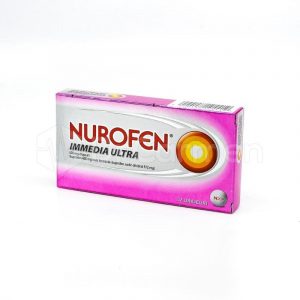Nurofen Immediate – Effects of NSAID on the Kidneys
Nurofen Immediate
Nurofen Immediate is a new analgesic from the family of acetaminophen and NSAID drugs. This drug contains hydrocodone as its primary ingredient. It is available without a prescription in many countries including the US and Canada. The name of the generic drug is Urinary Non-Sodium Intravenous Injection or NSV-IP. The trade names that the medicine is marketed under are Reglan, Nuprin, Excedrin, Preparation H, Desonide and Diovan.
The active ingredient in this medicine is salicylic acid, which acts as an inhibitor against prostaglandins. This compound has proven to be very effective for treating moderate to severe hypertension and pain in the muscles and joints. It has been found to be at least as effective in reversing the effects of hypertension and other cardiovascular diseases as the commonly prescribed vasodilators (vasodilators) such as aspirin and ibuprofen. The mechanism of action of NSAID is not clear but it is presumed that the medication prevents the rupture of fluid from the joints by inhibiting enzymes that produce prostaglandins.

This drug acts by inhibition of cyclooxygenase and norepinephrine; thus reducing the concentration of these two neurotransmitters in the human heart. When nurofen imedia is taken, it inhibits the enzyme dihydrotestosterone (DHT) which is responsible for the formation of follicles and thus preventing hair loss in men and thinning of the skin in women. It also inhibits the formation of new blood vessels, thus preventing clots from building up in the veins. Since the inhibitors also have effects on the platelets, they may also reduce the risk of bleeding from veins.
Nurofen Immediate – Effects of NSAID on the Kidneys
Other common side effects include stomach upset, constipation and diarrhea. In extremely rare cases, NSAID agents have been known to cause a condition called rhabdomyolysis, which results in the cell death of muscle cells. A few other rare side effects are increased sensitivity to sunlight and depression. More often than not, patients using NSAID to treat high blood pressure and heart failure are put on diuretic therapy so that the kidneys can excrete more water and thereby prevent constipation. However, NSAIDs should never be taken without talking to your doctor first.
Studies indicate that NSAID use may increase the risk of esophageal, stomach or esophageal cancer, especially if taken for a long time. Moreover, the risk of kidney damage increases with the duration of use. NSAID use is associated with a higher risk of bleeding due to its effect on the clotting process. NSAID reduces the effectiveness of aspirin, thereby increasing the risk of heart muscle weakness or even heart failure. Studies also indicate that NSAID use may lead to the development of kidney damage in elderly patients.
Nurofen and other such anti-inflammatory medicines should only be taken under close medical monitoring if it’s necessary. They should never be used by people with conditions such as bleeding disorders, kidney damage or heart problems to prevent them from getting worse. Long-term use of such medicines may reduce the resistance of the human body against illnesses, but prolonged use may also lead to vitamin D deficiency. Nurofen and other anti-inflammatory medicines should be taken with food or with the recommended dose according to the package instructions.